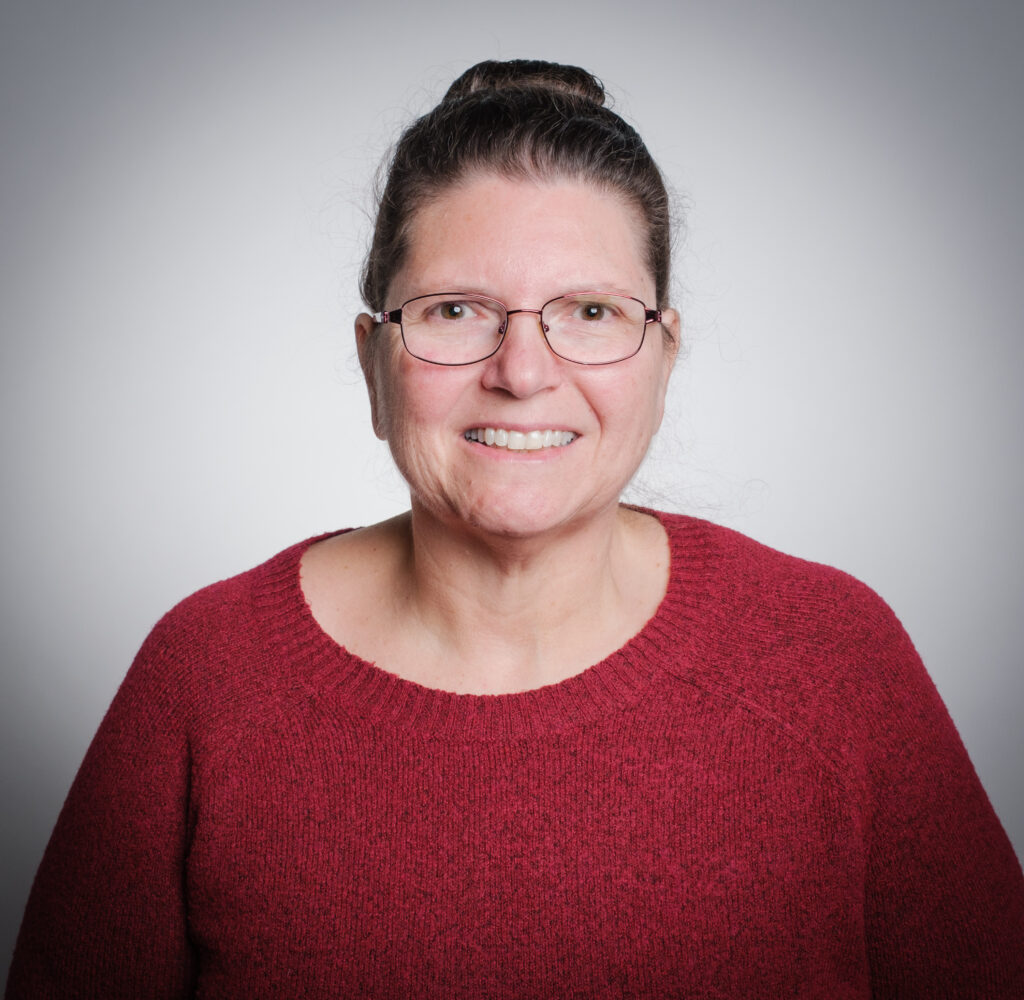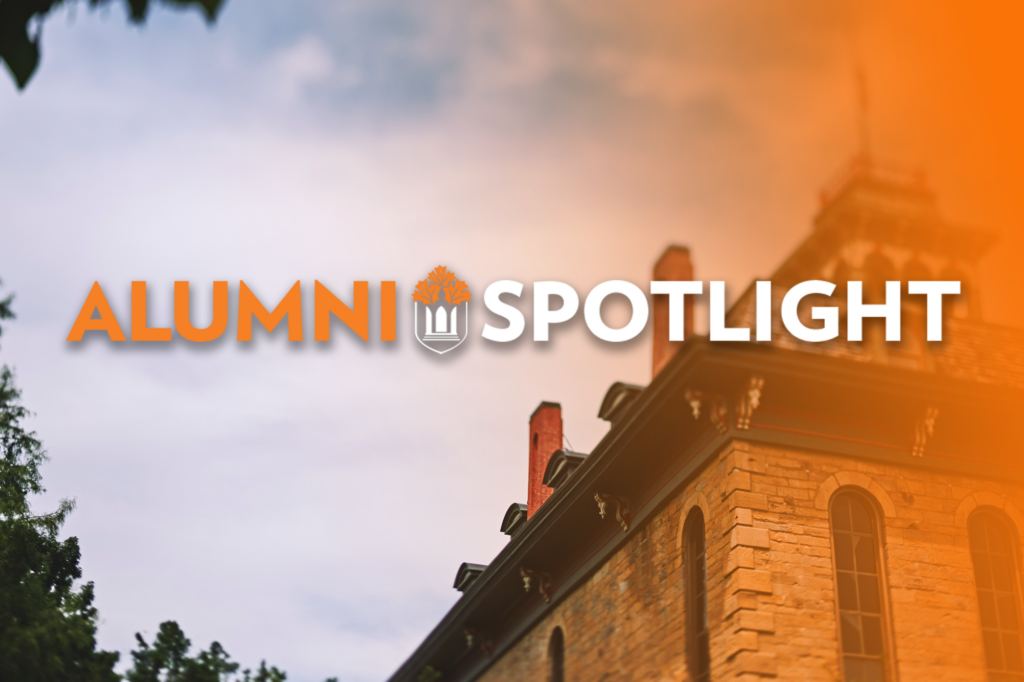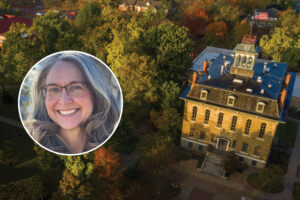Each month we connect with alumni who are making a difference in their careers and communities and find out how Baker helped them along their way.
Dr. Marlene Eicher, DNP, RN, APRN, FNP-BC, BSN 2005
What was the first moment that made Baker feel like home?
I was a 45-year-old, nontraditional student when I arrived at Baker University School of Nursing in fall 2003. I was the oldest student in a class of 40, and we were targeted to graduate in May 2005 with a Bachelor of Science in Nursing (BSN) degree. A tour of the Topeka campus and my interview with students, faculty, and administration team had the greatest impact on my decision to attend Baker. It felt like a wonderful environment to learn and grow in my new role as a nursing student and future nurse. I made connections with the administration team and faculty prior to arriving on campus to start the semester.

What was your favorite class and why?
My favorite class was Nursing of Adult I where I discovered the science behind surgeries, and evidence-based practice for postanesthesia care unit and postsurgical nursing on the medical-surgical floor. In second semester, Nursing of Adult I was our first medical-surgical course. I thought my nursing interest was labor, delivery, and newborn care, but my first semester clinical experience was on the postsurgical care unit for Foundations of Nursing clinical. My nursing passion was ignited after learning about surgeries and then performing safe wound care and nursing procedures to help patients improve and return to health.
Who made the biggest impact on you while at Baker?
All faculty and administration staff had a positive impact on my nursing education experience. The reason Baker SON is a wonderful place to learn nursing is because faculty teach their area of expertise and passion. My faculty advisor throughout the program was Elaine Shutt, and I felt so supported. Judy Ackeret was the Nursing of Adult I faculty, and she inspired my interest in pain management, surgical care of wounds, drains, and tubes on the postsurgical nursing unit. Judy became my faculty mentor in my new role after earning a Master of Science in Nursing (MSN).
What are two things that you would tell current students?
For two years, nurses receive a focused education to understand and apply pathophysiology, pharmacology, assessment findings, procedures, clinical reasoning, critical thinking, and determine if provider orders are correct. Nursing education programs are challenging because nurses are accountable to provide safe, competent, quality care and be advocates for patients and their family. A BSN degree and registered nurse license are extremely rewarding and provide many opportunities to grow into an expert professional nurse.
How did your Baker experience shape your career?
One year after I graduated with my BSN, Linda King, the faculty member teaching Foundations of Nursing, encouraged me to teach as a clinical adjunct on the postsurgical care unit where I worked as a nightshift staff nurse. In 2007, I started an MSN program with a focus on family health care as an advanced practitioner registered nurse (APRN). I chose this track with two intentions. First, I believed a higher-level nursing education would provide an opportunity for a part-time provider position while working full time as a nurse educator. I had two years of staff nursing experience working two units. Second, I believed an APRN education would provide “real life” nursing experiences that I could share to enrich knowledge, critical thinking, and clinical reasoning for Baker students and future nurses.
Can you briefly describe your career path since graduating from Baker?
I worked eight and half years as a staff nurse on postsurgical care units at two hospitals, and then I worked nine years as an urgent care APRN at two clinics. I started as a clinical adjunct at Baker SON in 2006, and advanced to instructor, assistant professor, and tenured professor. I am currently the associate dean of graduate programs. This position provided an opportunity to use past marketing skills. In my administration role, I work with marketing, enrollment, and admission teams and then guide nursing education for future nurse educators and nurse administrators while they earn their MSN degree. I continue to develop and teach graduate courses and diabetes management to second-semester students. Diabetes self-care management was the focus of my graduate projects for MSN and Doctor of Nursing Practice (DNP) degrees.
What do you love about Baker the most?
Baker SON feels like a family! Because of Baker SON faculty, I learned the importance of keeping my nursing skills at the highest level by using evidence-based practice research, and I gained the benefits of networking with nursing educators and the health care team in a variety of settings. It is a privilege to be a faculty member and mentor for the next generation of nurses and advocate for local and global health care. Still today I see the passion for lifelong learning in the faculty and administration team that I work with. At our small, private SON, we aspire to build connection with our students and provide quality nursing education and develop confident, competent, and professional nurses who become nurse leaders that support patient-focused health care in their communities.





